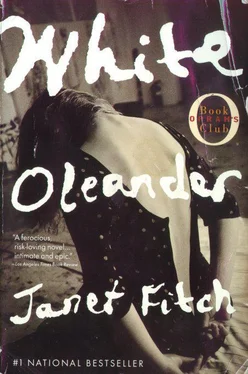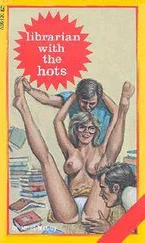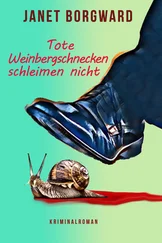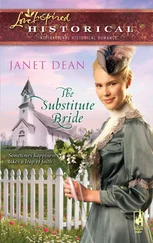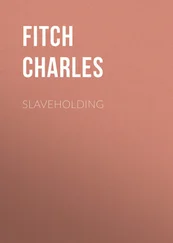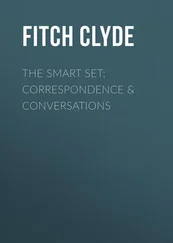Janet Fitch - White Oleander
Здесь есть возможность читать онлайн «Janet Fitch - White Oleander» весь текст электронной книги совершенно бесплатно (целиком полную версию без сокращений). В некоторых случаях можно слушать аудио, скачать через торрент в формате fb2 и присутствует краткое содержание. Жанр: Современная проза, на английском языке. Описание произведения, (предисловие) а так же отзывы посетителей доступны на портале библиотеки ЛибКат.
- Название:White Oleander
- Автор:
- Жанр:
- Год:неизвестен
- ISBN:нет данных
- Рейтинг книги:3 / 5. Голосов: 1
-
Избранное:Добавить в избранное
- Отзывы:
-
Ваша оценка:
- 60
- 1
- 2
- 3
- 4
- 5
White Oleander: краткое содержание, описание и аннотация
Предлагаем к чтению аннотацию, описание, краткое содержание или предисловие (зависит от того, что написал сам автор книги «White Oleander»). Если вы не нашли необходимую информацию о книге — напишите в комментариях, мы постараемся отыскать её.
White Oleander — читать онлайн бесплатно полную книгу (весь текст) целиком
Ниже представлен текст книги, разбитый по страницам. Система сохранения места последней прочитанной страницы, позволяет с удобством читать онлайн бесплатно книгу «White Oleander», без необходимости каждый раз заново искать на чём Вы остановились. Поставьте закладку, и сможете в любой момент перейти на страницу, на которой закончили чтение.
Интервал:
Закладка:
She talked some about what we’d been doing, that she’d signed me up at Fairfax High, that we’d gone to the movies and a jazz concert at the art museum. “Astrid’s quite an artist,” she said. “Show him what you’ve been doing.”
Claire had bought me a set of Pelikan watercolors in a big black case, a book of thick-textured paper. I’d been painting the garden, the droop of the Chinese elm, the poinsettias against the white wall. Spires of delphinium, blush of roses. Copies of the Dürer rabbit. Claire practicing ballet in the living room. Claire with a glass of white wine. Claire, her hair up in a turbaned towel. I didn’t want to show them to Ron. They were too revealing.
“Show him,” Claire said. “They’re beautiful.”
It irked me that she wanted me to show him. I thought they were something between us, from me to her. I didn’t know him. Why did she want me to? Maybe to prove they’d made the right decision in taking me. Maybe to show what a good job she was doing with me.
I went and got the big pad, handed it to Ron, and then went out in the dark garden and kicked the heads off the stray Mexican evening primroses that crept into the lawn. I heard him turning the pages. I couldn’t watch.
“Look at this.” He laughed. “And this. She’s a natural. They’re terrific,” he called out to me in the dark. I kept kicking the heads off the primroses.
“She’s embarrassed,” Claire said. “Don’t be embarrassed, Astrid. You have a gift. How many people can say that?”
The only one I knew was behind bars.
A cricket or night bird was making squeaky sounds like a hamster going around a wheel. On the patio, under the chili lights, Claire described making the paella, as if it were a Keystone comedy, working up an enthusiasm that made my stomach ache. I looked at Ron, in his white shirt washed with a trace of pink-orange from the lights, laughing along with her. His arms crossed behind his head, his pleasant face laughing, his clean foot in its sandal perched on his jean-covered knee. Why don’t you go away, Ron? There were witch doctors waiting to be interviewed, tortilla miracles to be documented. But the sound of her laughter was sticky as sap, the smell of night-blooming jasmine soft as a milk bath.
“Astrid, are you still there?” Claire called out to me, peering into the darkness.
“Just thinking,” I said, pulling a sprig of mint from under the hose bib, crushing it in my hand. Thinking that tonight they would lie together in the pine bed with the rose sheets, and I would be alone again. Women always put men first. That’s how everything got so screwed up.
AFTER MY WEEK alone with Claire, I reluctantly returned to school, to finish out tenth grade at Fairfax High. I was happy enough not to have to go back to Hollywood, where they had seen me eating out of the garbage. This was a whole new start. At Fairfax I was blissfully invisible again. I came home from school each day to find Claire waiting for me with a sandwich and a glass of iced tea, a smile, questions. At first it seemed weird and unnecessary. I had never come home to someone waiting for me before, someone looking forward to the sound of my key in the door, not even when I was a child. It felt like she was going to accuse me of something, but that wasn’t it. She wanted to know about my composition on Edgar Allan Poe and my illustrations on the chambers of the heart and the circulation of the blood. She was sympathetic when I got a D on an algebra test.
She asked about the other kids, but I didn’t have much to tell. At the best of times, I was never very sociable. School was a job, I did it and left. I had no intention of joining the Spanish club or Students Against Drunk Driving. I even passed by the stoner crowd without a glance. I had Claire now, waiting for me. She was all I needed.
“Did you have a nice day at school?” she’d ask, drawing up a chair at the little red-and-white kitchen table.
She had some mistaken notion that Fairfax was like high school where she grew up in Connecticut, despite the clear presence of metal detectors at every entrance. I didn’t tell her about the free-for-alls on the school yard, muggings on the bus. A girl burned a cigarette hole into the back of another girl’s shirt at nutrition, right in front of me, looking at me, as if daring me to stop her. I saw a boy being threatened with a knife in the hallway outside my Spanish class. Girls talked about their abortions in gym class. Claire didn’t need to know about that. I wanted the world to be beautiful for her. I wanted things to work out. I always had a great day, no matter what.
ON SATURDAY, Ron mowed the lawn, cutting the heads off the primroses, and then settled into reading some scripts. We had lox and bagels for breakfast, and Claire went to her ballet class. I sat with my paints next to Ron at the table. I was getting used to him. He didn’t try to be any friendlier than I wanted.
“How does Claire seem to you?” he asked all of a sudden. He looked at me over the tops of his glasses like an old man.
“Fine,” I said.
But I had some idea what he was talking about. Claire paced at night, I heard her bare feet on the floorboards. She talked as if silence would crush her if she didn’t prop it up with a steady stream of sound. She cried easily. She took me to the observatory and started crying in the star show. The April constellations.
“You have my pager number, you know. You can always reach me.”
I kept painting the way the poinsettia looked against the white wall of the house. Like a shotgun blast.
CLAIRE PUSHED back the muslin curtain, glanced out at the street. She was waiting for Ron. It was still light out, moving toward summer, a six o’clock honeyed twilight.
“I think Ron is having an affair,” she said.
I was surprised. Not at the thought—I knew the reason she would stop talking when he was on the phone, the way she would gently probe him to discover his whereabouts. But that she would say it aloud indicated a progression of her doubts.
I thought about Ron. His smoothness. Sure, he could get women anytime he wanted. But he worried too much about Claire. If he was messing around, why would he care? And he worked hard, long hours, always came home tired. He wasn’t that young. I didn’t think he had the energy.
“He’s just working,” I said.
Claire peered out into the street from behind the curtain. “So he says.”
“HAVE YOU seen my keys?” Ron asked. “I’ve looked everywhere for them.”
“Take mine,” Claire said. “I can have another set made.”
“Yeah, but it bugs me that I’m losing things. They’ve got to be around here somewhere.”
He took Claire’s keys, but it bothered him. He was a highly organized man.
One day, I saw Claire take a pen from Ron’s inside jacket pocket, slip it into her jeans.
“Have you seen my Cross pen?” he asked a few days later.
“No,” she said.
He frowned at me. “Did you take it, Astrid? Tell me the truth, I won’t be upset. It’s just things are disappearing and it’s driving me crazy. I’m not accusing you of stealing them, but did you borrow it and not put it back?”
I didn’t know what to say. I didn’t want to rat on Claire, but I didn’t want him thinking I was stealing from him either. I would do anything not to lose this placement. “I didn’t take it, really. I wouldn’t.”
“I believe you,” he said, running his hand through his silver hair. “I must be getting senile.”
“Maybe it’s poltergeists,” Claire said.
When Claire went out for an audition, I searched the house methodically. Under their bed I found a box painted red and white and decorated with pieces of broken mirror. Inside, it was also red, and full of the things that he’d been missing—an army knife, a watch, his stapler, scissors, keys, nail clippers. There was a Polaroid of them laughing, and two Polaroids glued together face-to-face, I couldn’t pry them apart. A magnet hung from the lid of the box, and a steel plate was glued to the bottom. I could feel the tug of the magnet as I replaced the lid.
Читать дальшеИнтервал:
Закладка:
Похожие книги на «White Oleander»
Представляем Вашему вниманию похожие книги на «White Oleander» списком для выбора. Мы отобрали схожую по названию и смыслу литературу в надежде предоставить читателям больше вариантов отыскать новые, интересные, ещё непрочитанные произведения.
Обсуждение, отзывы о книге «White Oleander» и просто собственные мнения читателей. Оставьте ваши комментарии, напишите, что Вы думаете о произведении, его смысле или главных героях. Укажите что конкретно понравилось, а что нет, и почему Вы так считаете.
